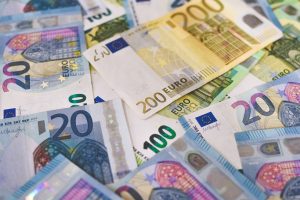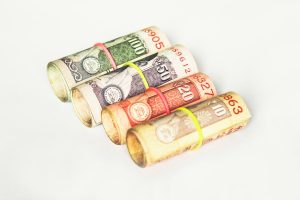Forex trading is a lucrative and exciting market, with potential for great gains if you know what you’re doing. But before you jump into it, you need to know how much money you should keep in your forex account. This can be a tricky question, as there are a lot of factors to consider. In this article, we’ll break down the different factors to help you determine the appropriate amount to keep in your forex account.
First, it’s important to understand that there is no one-size-fits-all answer to this question. The amount of money you should keep in your forex account will depend on a variety of factors, including your trading style, risk tolerance, and overall financial situation.
One rule of thumb is to never risk more than 2% of your account balance on any one trade. This means that if you have a $10,000 forex account, you should never risk more than $200 on any one trade. This is a conservative approach, but it can help prevent you from losing all of your money on one bad trade.
Another factor to consider when determining how much money to keep in your forex account is your trading style. If you’re a day trader, you’ll likely need a larger account balance than if you’re a swing trader. Day traders make multiple trades each day, meaning they need more money in their account to cover potential losses. Swing traders, on the other hand, hold positions for days or even weeks, meaning they can get away with a smaller account balance.
Your risk tolerance is also an important factor to consider when determining how much money to keep in your forex account. If you’re a conservative investor who doesn’t like taking big risks, you may want to keep a larger amount of money in your account. This will give you a larger buffer to absorb potential losses. If you’re a more aggressive investor who is comfortable taking big risks, you may be able to get away with a smaller account balance.
Your overall financial situation is also important to consider when determining how much money to keep in your forex account. If you have a lot of other assets and a stable income, you may be able to get away with a smaller account balance. If you’re just starting out and don’t have a lot of other assets or income, you may want to keep a larger amount of money in your account to protect yourself from potential losses.
In addition to these factors, there are some other things to keep in mind when determining how much money to keep in your forex account. First, you’ll want to make sure you have enough money to cover your trading fees and expenses. This includes things like brokerage fees, spread costs, and any other expenses associated with trading forex.
You’ll also want to make sure you have enough money to cover any margin calls. Margin is the amount of money you need to have in your account to hold a position. If the value of your position falls below a certain level, you may receive a margin call, which means you’ll need to deposit more money into your account to cover the margin requirement. Make sure you have enough money in your account to cover any potential margin calls.
Finally, it’s important to remember that forex trading is risky, and there is always the potential to lose money. Make sure you’re comfortable with the amount of money you’re putting into your forex account, and don’t invest more than you can afford to lose.
In conclusion, determining how much money to keep in your forex account is a complex decision that depends on a variety of factors. Consider your trading style, risk tolerance, financial situation, and other expenses associated with trading when making this decision. Remember to never risk more than 2% of your account balance on any one trade, and make sure you have enough money to cover your trading fees, margin calls, and other expenses. With careful planning and a conservative approach, you can minimize your risk and maximize your potential profits in the forex market.





